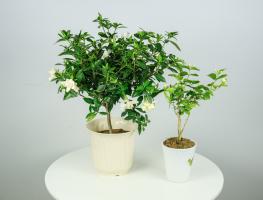What Happens if You Don't Harden Off Tomato Plants
Tomato plants are delicate plants that require special care and attention to grow properly. Hardening off tomato plants is an essential step in helping them adjust to the outdoor environment. Failure to harden off tomato plants can have adverse effects on their growth and production. This article will explore the consequences of not hardening off tomato plants.
What is Hardening Off Tomato Plants?
Hardening off is the process of gradually acclimatizing indoor-grown plants to outdoor conditions. Tomato plants that have been grown indoors, in a warm and controlled environment, need to be exposed to the outdoor environment slowly. This process helps the plants to adjust to the outdoor environment, including changes in temperature, wind, and light intensity.
The process of hardening off tomato plants involves exposing them to outdoor conditions for a few hours each day for a week or two before transplanting them. This allows the plant tissues to strengthen, and the plant will be better equipped to withstand the harsh outdoor conditions.
What Happens if You Don't Harden Off Tomato Plants?
If you skip the hardening off process and move indoor-grown tomato plants directly to the outdoor environment, the plants will suffer from shock, and their growth will be hampered. Here are the consequences of not hardening off tomato plants:
Stunted growth:
Tomato plants that are not hardened off before transplanting will struggle to grow and produce fruit. As a result, the size of the plant will be small, and the leaves will be smaller than those of hardened off plants.
Leaves become dry and wilted:
When indoor-grown tomato plants are exposed to the outdoor environment without being hardened off, their leaves will wilt and become dry. This is because the plants are not accustomed to the outdoor conditions, including direct sunlight, wind, and fluctuating temperatures.
Slow recovery:
Tomato plants that are not hardened off will take a long time to recover from the shock of transplanting. The plants will not grow as fast, and they will produce less fruit than plants that were hardened off.
Insect and disease infestations:
Tomato plants that are not hardened off are more susceptible to insect and disease infestations. This is because the plants are stressed and weaker, making them more vulnerable to pests and diseases.
Conclusion
Hardening off tomato plants is an essential step in tomato gardening. Failure to do so can result in stunted growth, leaf wilting, slow recovery, and insect and disease infestations. It is important to take the time to harden off tomato plants before transplanting to ensure that they grow and produce fruit successfully.

 how many times do yo...
how many times do yo... how many planted tre...
how many planted tre... how many pine trees ...
how many pine trees ... how many pecan trees...
how many pecan trees... how many plants comp...
how many plants comp... how many plants can ...
how many plants can ... how many plants and ...
how many plants and ... how many pepper plan...
how many pepper plan...































